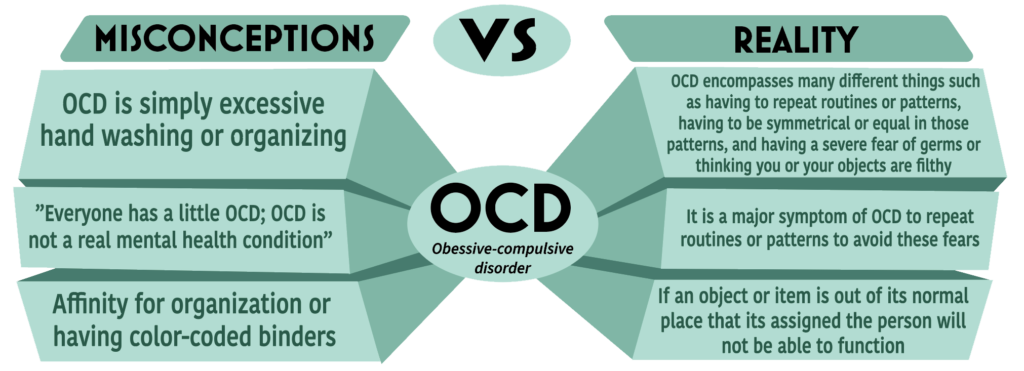OCD diagnosis leads to crushing symptoms
Divy Bose | The Chronicle
Being a neat freak is not what OCD is about.
Obsessive-Compulsive Disorder (OCD) is a mental health disorder characterized by extreme agitation and recurring thoughts and behaviors. Those diagnosed with this disorder often face extreme symptoms such as excessive hand-washing and fear of germs. However, OCD is far more than a habit of cleanliness, and Senior Nick Brady has first-hand experience with the struggles OCD brings.
“I have a giant coin collection that my sister decided to trash,” Brady said. “I wasn’t able to sleep for two days until I meticulously reorganized everything.”
For those diagnosed with OCD, having to stay organized or set a routine is more than just a pet peeve or superstition. Brady said he must always remain equal or symmetrical in his everyday life, as well as remain as organized as possible. Brady said that the concept of OCD is often misunderstood by his peers and the impact of the disorder is minimized.
“You can have OCD tendencies, but that does not mean you have OCD,” Brady said. “Liking something a certain way is a preference, not the disorder itself.”
Different people can experience different symptoms of OCD. While organization became a necessity for Brady, senior Rowan Ulsh said that his OCD instills a constant worry of germs and bacteria.
“I can’t put my shoes on without constantly thinking about how disgusting they are,” Ulsh said. “It stops me from functioning and gets in the way of me being a normal person.”
Not performing these particular routines can lead to a feeling of intense apprehension for those with OCD. Brady said that going against his tendencies can result in him feeling trapped in his own body.
“When I was first diagnosed with OCD, I had a tendency to always sit closest to the door during class,” Brady said. “I was scared that if I didn’t sit by the door, something bad would happen.”
As some OCD symptoms require repeating routines, maintaining focus in the classroom can be difficult. Ulsh said that he struggles to concentrate when he feels objects are imbalanced or not in his preferred order.
“If a teacher prints out letters that are crooked on a page, I cannot even touch it,” Ulsh said. “[Some] of my teachers [get] slightly annoyed, and I can’t blame them for that since they’re adjusting to [new] information.”
Treating OCD can come in many different forms based largely on patient preference and severity. The most common paths of treatment are therapy and medication, but Brady found that squishing a tennis ball in his pocket releases energy and helps him cope with his OCD.
“It distracts me from my OCD tendencies long enough to allow me to temporarily focus on my school work,” Brady said. “I use a lot of the same techniques to ease OCD as I do for my ADHD.”
Counting numbers is another common strategy that is seen in OCD to help cope with different tendencies. Ulsh said that walking from place to place can be a struggle without counting a desired number of steps.
“I like numbers since they help me with my anxiety,” Ulsh said. “I count my steps to get me from point A to Point B.”
Ulsh said that addressing an OCD diagnosis with teachers and family members can be difficult, and he tries to go as long as possible before bringing it up to prevent feeling like a bother to those around him.
“I don’t want to tell my teachers about my OCD because it just means something is wrong and they cannot fix [it],” Ulsh said. “I feel like an annoyance when I talk about it, but, in reality, my brain is making these problems for me.”
Ulsh said that having conversations about mental health develops more of an understanding towards commonly misunderstood topics – a necessity when it comes to OCD.
“Mental illness should be normalized, not trivialized,” Ulsh said. “It really annoys me when people say they’re ‘a little OCD’ or have a pet peeve when [OCD] is something that really inhibits my life.”

Infographic by Allison Droege
